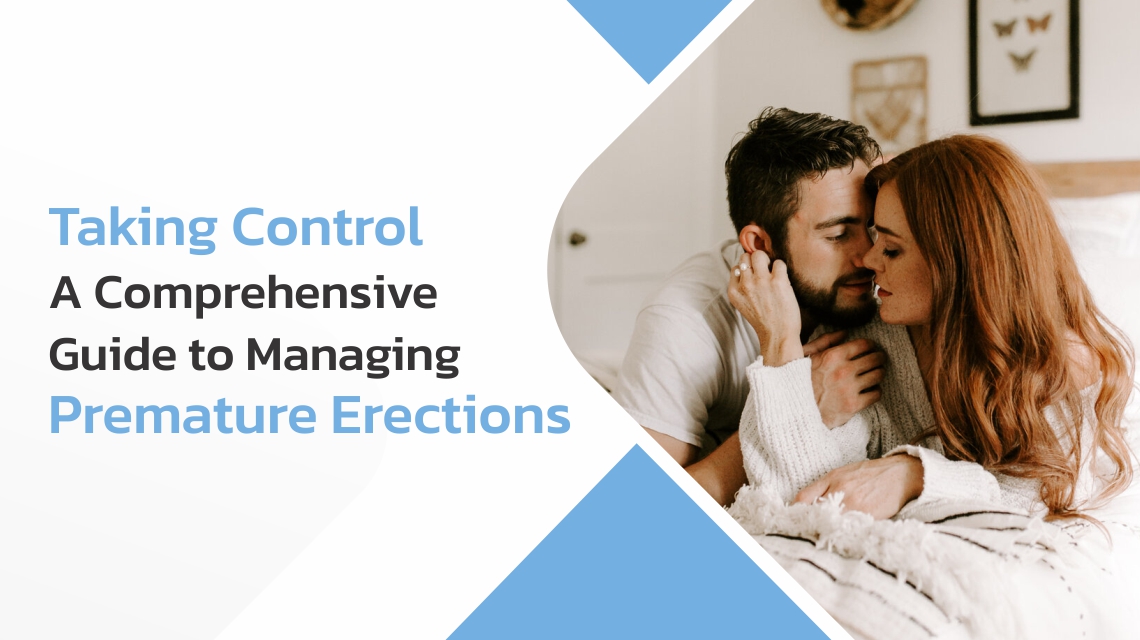Taking Control: A Comprehensive Guide to Managing Premature Erections
Written by Helen Pack
Published Oct 10, 2023
2124
Updated Oct 10, 2023

Introduction
Premature ejaculation is a common concern among men, affecting about one in three. While early ejaculation can happen now and then, frequent occurrences can cause worry. This situation is frustrating but the good news is, that there are effective ways to manage and control premature erections. To help regain control and enjoy a satisfying sex life, it is important to understand the causes, techniques, and treatment options related to premature ejaculation.
Understanding Premature Erections
Premature erection is also known as premature ejaculation (PE), and can occur when a man ejaculates sooner than wanted during sexual intercourse. It can lead to dissatisfaction within you and your partner, and frustration in the bedroom.
It is best to visit a healthcare expert if you:
- Frequently ejaculate within 1 to 3 minutes after penetration
- Can't postpone ejaculation during sex
- Tend to avoid sexual intimacy due to stress and frustration
What causes premature erections?
The exact cause of premature ejaculation is unknown but early erection reasons can be due to factors including:
- Psychological factors such as such as stress, depression, and performance anxiety can trigger premature erections. Other factors include fear of sexual failure or past negative experiences.
- Biological factors such as hormonal imbalances, inherited traits, and irregular levels of brain chemicals can also cause PE. Erectile dysfunction and premature ejaculation are also related.
Other factors such as relationship problems with your partner can also cause you to ejaculate sooner than you wish to.
How to manage premature erections:
It might take time to find the right treatment for you but a few common options include:
- Behavioral Therapy: Cognitive-behavioral therapy (CBT) can help address psychological factors contributing to PE. A therapist can provide strategies to reduce anxiety and improve sexual performance.
- Pelvic floor exercises: Exercises such as kegel can strengthen pelvic floor muscles and improve ejaculatory control. To perform Kegels, tighten the muscles that stop urination and hold for a few seconds before releasing.
- The Start-Stop Technique: Pause when you feel like you are nearing ejaculation. Relax and continue once the urge decreases. Repeat as necessary to reach a satisfying experience.
- The pause-squeeze technique: Temporarily pauses the urges to ejaculate and is similar to the start-stop method. It involves squeezing the base of the penis for about 30 seconds when you feel close to climax.
- Medications: Topical anesthetics( creams, sprays, or gels) and certain oral medications, such as selective serotonin reuptake inhibitors (SSRIs), can delay ejaculation. These should be taken cautiously and under a doctor's supervision.
Remember, taking proactive steps is the first move toward managing premature erections and achieving a satisfying sexual experience and overall well-being.